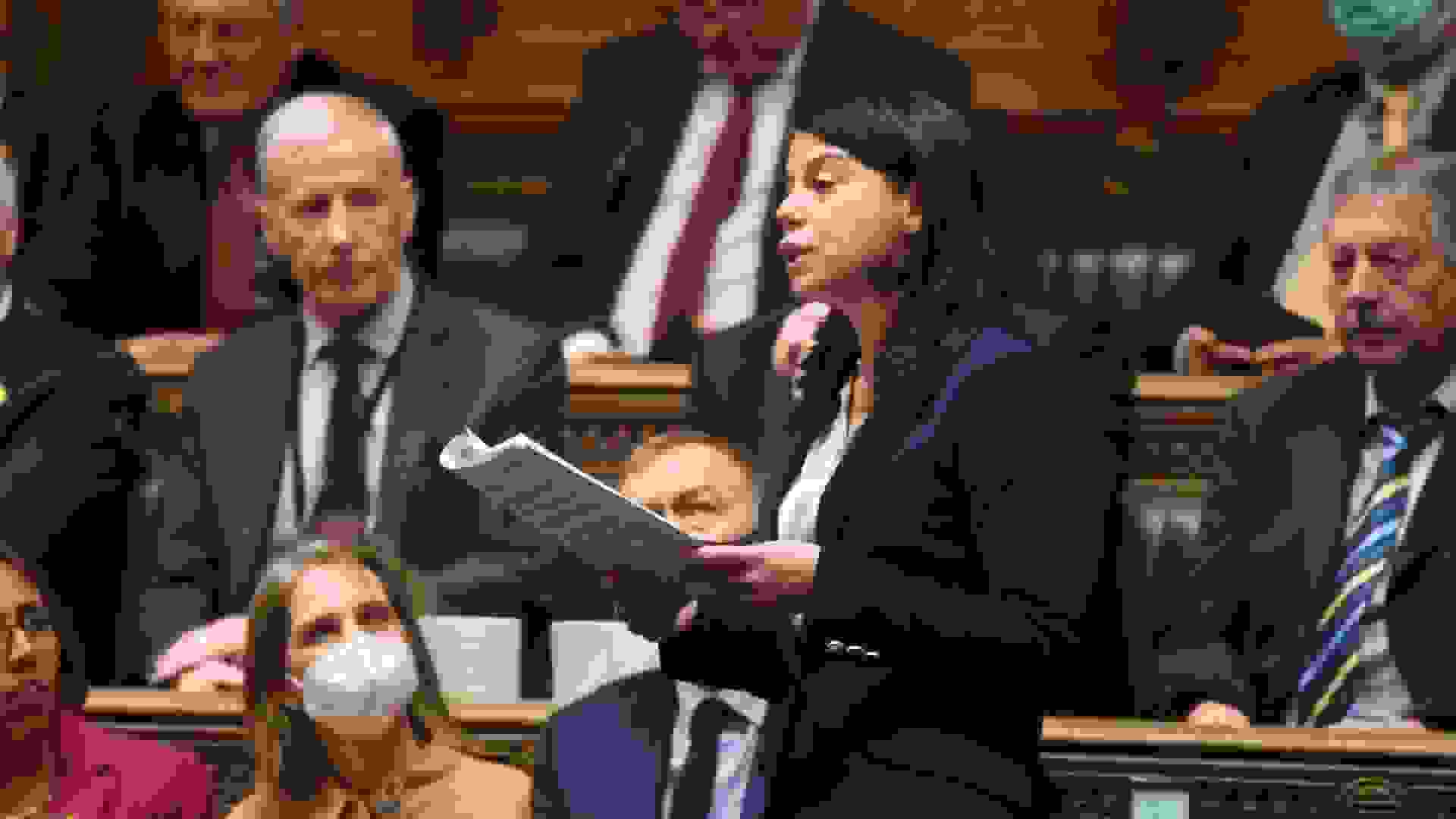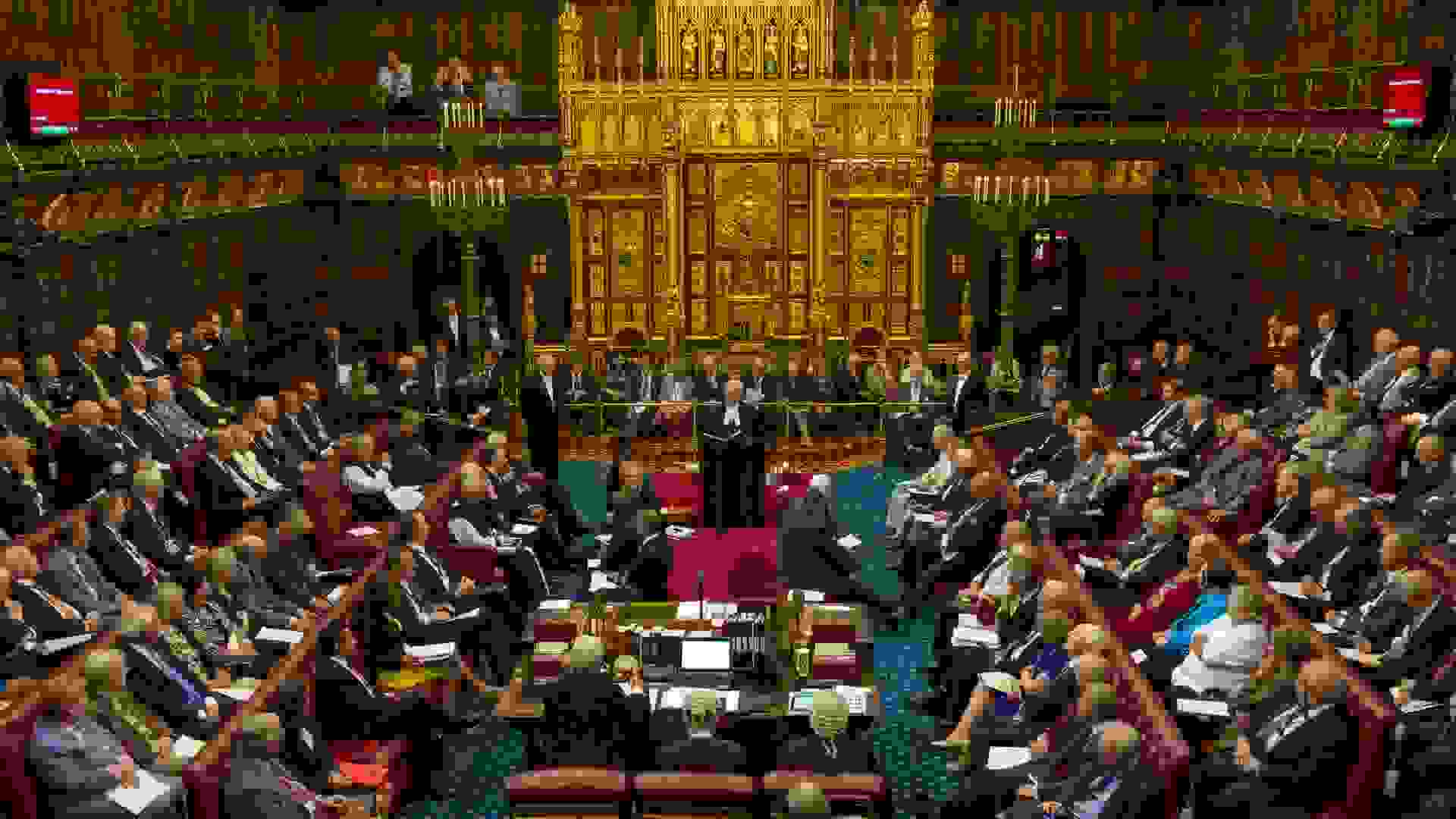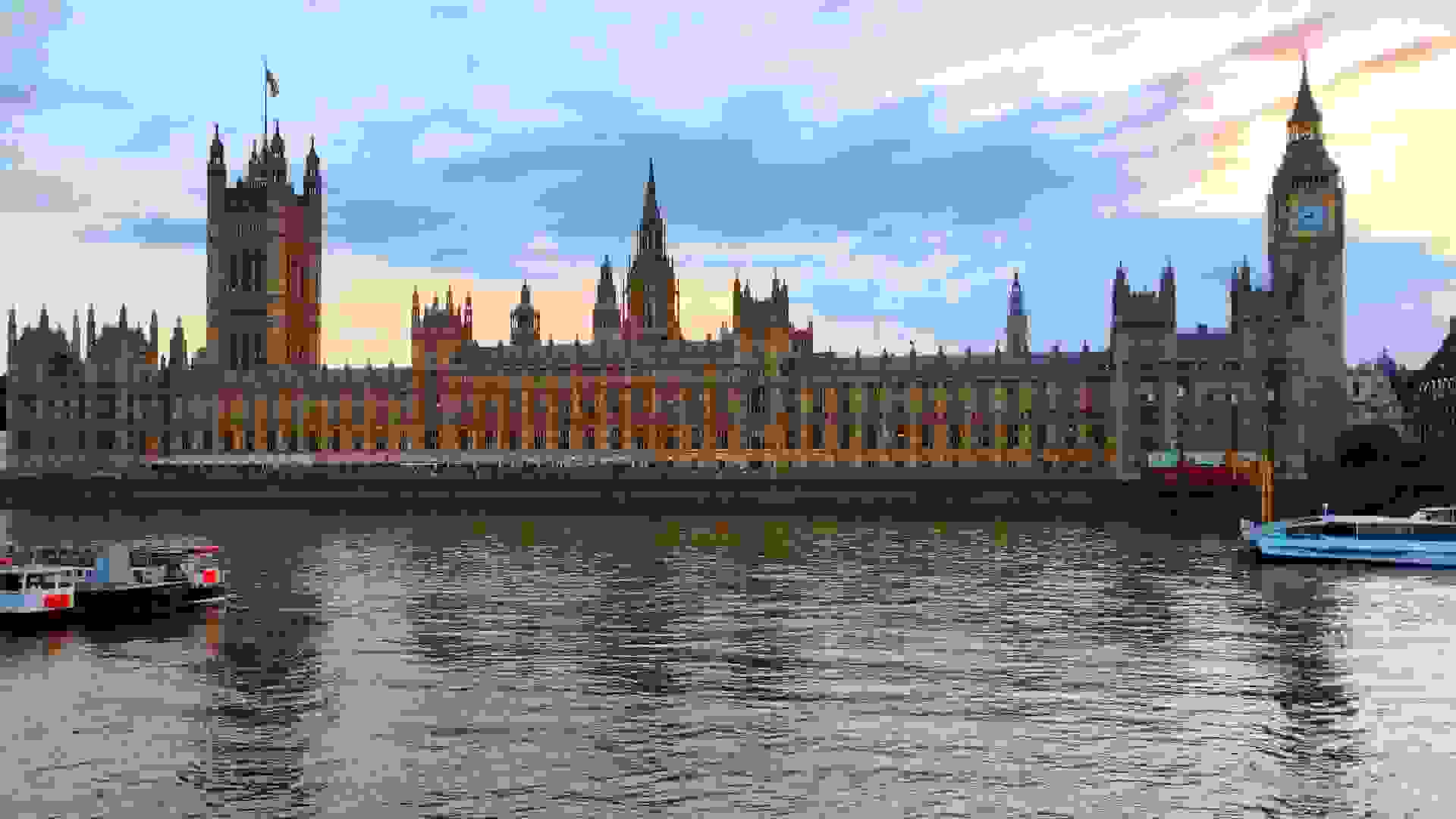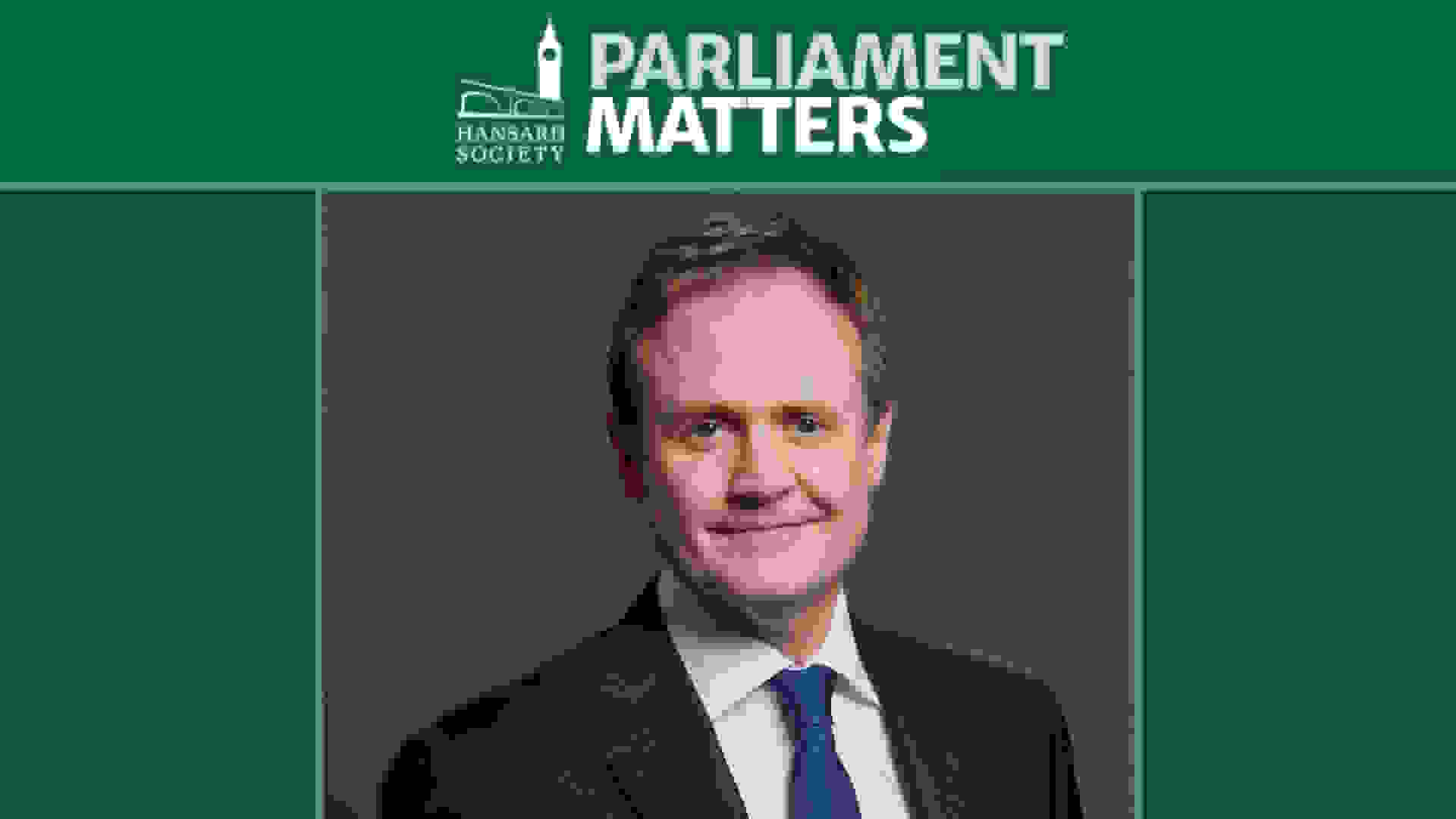00:02:27:16 - 00:02:48:06
So was there pretty much an existing text that you could take off a ministerial shelf and put into a private member's bill essentially to begin with. Yes, but we've been working on it to try and improve it and it'll go to committee shortly and there may still be improvements to be made, but the essential text has been provided by the government with the support of the Opposition.
00:02:48:11 - 00:03:09:03
Tell us what that looks like. I mean, what kind of engagement do you have with ministers? Did they contact you? You know, when you've come forth in the ballot for private member's bills, you've got a good chance we've got a bill here. Or did you approach them? How does it work? Well, once I’d been drawn fourth in the ballot, I was inundated it with organisations and individuals.
00:03:09:03 - 00:03:31:19
That had very, very good suggestions to make on what would be an appropriate private member's bill. And one of the suggestions actually came from a government whip regarding this piece of SLAPPs legislation. And I considered that alongside all the others and for the reasons which I gave earlier, I thought this was an important issue and I had a good chance of success.
00:03:31:19 - 00:03:55:21
So I decided to go with that one. Now, the way the strategic litigation against public participation, SLAPPs, work is essentially, you know, you're a journalist writing about a very rich individual and discussing their interests, and the next thing you know, you're hit with the threat of court action, and you're hit not only with the threat of being in the courts, but also with paying massive, massive costs.
00:03:55:23 - 00:04:19:06
And suddenly you're thinking, crikey, I could lose my house. So how does your bill address that issue? In a number of ways. I mean, first of all, it gives new powers to a judge to determine whether or not something is a SLAPP or not. The legislation which I'm bringing forward allows the judge to either reject that litigation or
00:04:19:08 - 00:04:50:17
actually say it can proceed, but costs will be awarded for the defendant. So it will not be the onerous risk of major costs being brought against individuals. So there's a kind of triage, if you like. Yes, it is important in that respect, and that that should give greater protection to ordinary people who are bringing issues which are of tremendous public concern and interest to a court and not being concerned about massive costs being charged against them by very rich companies or individuals.
00:04:50:19 - 00:05:14:00
But it's not just, you know, rich sort of oligarchs, is it? It's also I was very struck reading the debate at second reading for your bill that it can be plastic surgeons who are trying to stop patients who suffered under their surgery, bringing the case to light. The Serious Fraud Office, has also, you know, faced threats from a Kazakhstan company, for example.
00:05:14:02 - 00:06:01:15
It's actually quite, quite wide ranging. It is quite rigid. And the use of SLAPPs is becoming more extensive. And you're right, there's been some high profile cases involving Russian oligarchs who've been flexing their muscles and throwing large sums of money to try and dissuade people from pursuing legitimate cases against them. But also we've seen increasingly tenants, for example, being threatened by their landlords and they might be bringing forward reasonable cases against their landlords for poor accommodation, but nevertheless, because the landlords might have a lot of money, they're issuing a defamatory cases against those individuals to try and shut them up basically and that is morally wrong as a distortion of our legal system.
00:06:01:17 - 00:06:24:24
Now, when your bill was going through the second reading debate in the Commons, everybody supported it. I didn't detect a dissenting voice anywhere. And crucially, you had support both from the shadow minister, Kevin Brennan, and the Justice Minister, Mike Freer. So at one level it looks like everything's fine. This will sail into the statute book in the not too distant future, but at the same time your bill’s then
00:06:25:01 - 00:07:00:19
Been waiting for a number of weeks to get into its detailed scrutiny at Committee Stage. Not a lot of people know this, but you can only have one private member's bill committee at a time and you're fourth in the queue. That is correct. Yes, but there's still some issues to be sorted out in committee. A committee stage is extremely important, but it's nevertheless the case that there's a queue and member four nevertheless has to wait until the 22nd of May and then of course, once the bill has completed its stages in the Commons, it has to go to a Lords and then come back and hopefully it'll reach the statute book.
00:07:00:19 - 00:07:20:09
But of course we're all concerned about when the general election will occur and I just hope that this will be sorted out and be on the statute book before the general election. With a following wind, you might get your bill through to the House of Lords in time, and it may be just about to have a second reading before the summer recess, maybe.
00:07:20:09 - 00:07:48:17
Yes, fingers crossed. So a number of MPs said during the second reading debate how important this bill was to parliamentary democracy, because it's part of the defense of freedom of speech. But one of the things that strikes me is the behavior of law firms, of lawyers in this. They know what they're doing when they're issuing these sort of pre-action letters on behalf of their clients, making threats of, you know, quite extensive litigation against journalists and writers and even politicians sometimes.
00:07:48:19 - 00:08:15:04
So bear in mind, you know, what you've seen. What do you think about the behavior of the law firms and the legal community? Well, I think generally speaking, the legal community is very, very good indeed. It has high moral and ethical standards. And I think that we should take note of the fact that, you know, London is one of the legal capitals of the world because of our excellent judicial system and the people who work within it.
00:08:15:07 - 00:08:39:06
But there are some individuals, some law firms who push things to the absolute limit and concern has been expressed - and beyond - and concern has been expressed to me that action against SLAPPs is needed to curb their activities. And I think the cases I've looked at, there are certainly quite a few instances where that is certainly the case.
00:08:39:12 - 00:09:03:15
Do you have somebody in the House of Lords primed, ready to take this on because you'll need somebody to steer it through? Clearly, that is something we are working on. One of the good things about the situation is that this has genuine cross-party support really, and there are a number of Conservative backbenchers who are following this issue very closely for a long bit of time, and they're making contacts with various peers.
00:09:03:17 - 00:09:20:19
A number of peers equally feel strongly about this, so it's a fair chance that there'll be a great deal of support coming from the Lords. And I was very struck during the debate. One Conservative MP offered to serve on the Public Bill Committee for the bill, Chris Clarkson, he's very keen. Tell us about that. I mean, setting up the committee.
00:09:20:19 - 00:09:40:08
Normally the whips appoint the members of a public committee from their respective parties. Do they do it? Do you nominate people? How does that work? That is something I'm seeking clarity on at the moment since you've been in the House for 23 years, but this is the first time you've been through this particular mill. That is correct.
00:09:40:08 - 00:10:04:05
Yes. The procedure is new to me even after all these years. Yes. We have a list of people who were keen to serve on the committee, which is quite unusual. And we have to have some negotiations with the parliamentary authorities and the political parties about who will be selected to go onto the committee, because this is there are some issues to be sorted out in committee.
00:10:04:05 - 00:10:30:14
So the balance, the political balance and the balance within the parties is actually quite important. And how do you go about building alliances? Because there's been a lot of campaigning around this issue for some time. There's an anti SLAPPs coalition. David Davis has brought this issue to the fore in debates previously. There’s sort of, you know, journalists alliances that are, you know, promoting this because they're concerned about the effect on their work.
00:10:30:16 - 00:10:54:17
Are you sort of engaged with all these organisations, with sort of civil society groups to build support or the fact that you've got government and opposition support means it's, you know, on its way and you don't need to worry about that. No it’s the former rather than the latter, really. Although this is a relatively small piece of legislation, it is an important piece of legislation and if it goes through, it will have a real impact.
00:10:54:19 - 00:11:19:17
But there's a lot of nuances and details which have to be sorted out, and that's why I'm engaging with a whole raft of different organisations. You mentioned the anti-SLAPP Coalition, the Law Society and indeed others. And you know, on some of the details of it, there's not agreement. So a decision has to be taken and the alliance is built to ensure that the best possible, the most effective piece of legislation goes through.
00:11:19:19 - 00:11:42:08
Now, you've mentioned it already, the possibility of a general election interrupting the progress of your bill is very real and you don't know when the balloon might go up. And if it does, what happens then? Suppose your bills got through the Commons and is in the House of Lords. There is a process where legislation is kind of fast tracked through perhaps filleted of controversial bits, called the wash up.
00:11:42:10 - 00:12:04:10
But does that apply with private member's bills or is that just for stuff the government puts forward? My understanding is it doesn't apply normally to the private members bills. But of course, I mean, I suppose if a government were really keen and enthusiastic to have it, they could insist that that happens and they would have no opposition from the opposition because, you know, Labour supports it, but it was a gray area.
00:12:04:10 - 00:12:26:21
But normally a private member's bill would not be subject to the so-called wash up procedure. That's why it's important that we've been ensuring that we have commitments from the Conservatives and the Labour Party. But whoever wins the election, this piece of legislation will be taken forward. A much of the hard work will have been done already for them.
00:12:27:01 - 00:12:48:04
As you mentioned, you've been in the Commons for 23 years. Where on the kind of Richter scale of things you've done in the Commons does bringing through a private member's bill, rate? Is this one of the most important things you've ever done? It probably is, yes, actually, that's right. I mean, I've never been personally in charge of a piece of legislation which is fairly close to reaching the statute book.
00:12:48:06 - 00:13:11:23
So, yes, it is quite important. That's not to minimize the things I've done. I've been a government minister, junior government minister. I've been on the opposition frontbench for 15 years. But I think this piece of legislation is of true significance and it will have an impact upon many people's lives if it's successful. And I hope very much indeed,
00:13:11:23 - 00:13:30:07
My fingers are firmly crossed, that this will succeed and we'll reach the statute book. Private members bills come in for a lot of criticism, the process and the procedure behind them. It’s different on a Friday, a private member's bill Friday, than it is for other days, and the procedures are different to what we normally see for government bills.
00:13:30:09 - 00:13:51:24
You've obviously had a better experience than many in the ballot because you've got - naming no particular former prime ministers - you know, you've got support from both the Government and the Opposition frontbenchers, but bear in mind what you've learned through this process and what you've seen in private members bills in the past. Do you think there are ways in which the process could be improved in, you know, the next Parliament?
00:13:52:01 - 00:14:14:07
Yes, I certainly think it could be improved as well, too. I mean, in a sense we've been quite fortunate with this in that there hasn't been any filibustering or any parliamentary tactics like that to try and quash it or push it to one side. And I think that the debate which you referred to, the second reading debate, that was on a Friday and was very well attended.
00:14:14:07 - 00:14:36:12
There were some excellent contributions, I think. And this so far is a model that things can proceed well. But as you suggest, there are plenty of other examples where Parliament has not done itself any great favors in the way it's dealt with private members bills, when some individuals might be strongly against them. So I think there is room for improvement.
00:14:36:14 - 00:15:11:10
But I also think that private members bills are an essential part of the parliamentary process and should be defended, extended and as you say, improved. Wayne David, thanks very much indeed for joining us on the pod. Thank you very much indeed. So we'll be taking a break for Easter now and we'll be back on the 12th of April where we'll be looking ahead to what's going to happen, the parliamentary political action when MPs and peers return, and possibly the prospect of that long awaited general election. In the meantime there’s an opportunity for you to catch up on any episodes you've missed.
00:15:11:12 - 00:15:20:22
And we will be back with you on the 12th of April. See you then.
00:15:20:24 - 00:15:40:21
Well, that's all from us for this week's episode of Parliament Matters. Please hit the follow or subscribe button in your podcast app to get the next episode as soon as it lands and help us to make the podcast better by leaving a rating or review on Apple or Spotify and sharing your feedback. Our producer tells us it's important for the algorithm to give the show a boost. Tell us more about the algorithm.
00:15:40:23 - 00:16:04:08
What do I know about algorithms? I write my scripts with a quill pen on vellum and then send it in by carrier pigeon. Well, before we go, a quick reminder also that you can send us your questions on all things Parliament by visiting hansardsociety.org.uk/pmuq. We'll be discussing them in future episodes, including our special Urgent Questions editions dedicated to what you want to know about Parliament.
00:16:04:12 - 00:16:24:05
And you can find us across social media @HansardSociety to get more content related to the show and the wider work of the Hansard Society.
00:16:24:07 - 00:16:40:11
Parliament Matters is produced by the Hansard Society and supported by the Joseph Rowntree Charitable Trust. For more information, visit hansardsociety.org.uk/pm or find us on social media @HansardSociety.











